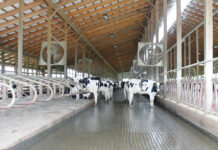MINNEAPOLIS/ST. PAUL — Vegetation, such as a patch of prairie or a forest stand, is more productive in the long run when more plant species are present.
A new University of Minnesota long-term study of plant biodiversity found that each species plays a role in maintaining a productive ecosystem, especially when a long time horizon is considered.
Each plays role
The study found that every additional species in a plot contributed to a gradual increase in both soil fertility and biomass production over a 14-year period.
The research highlights the importance of managing for diversity in prairies, forests and crops, according to Peter Reich, a professor in the university’s forest resources department and the study’s lead author.
Reich and his colleagues examined how the effect of diversity on productivity of plants changed over the long term in two large field experiments at the University of Minnesota’s Cedar Creek Ecosystem Science Reserve in central Minnesota.
These are the longest-running biodiversity experiments in the world, and contain plots with one, four, nine or 16 different species of plants.
Reich’s research was done using long-lived prairie plants, but he said it serves as a model system for all vegetation, whether prairie, forest or row crop.
Different mechanisms
The study also showed how diversity works by demonstrating that different species have different ways to acquire water, nutrients and carbon and maintain them in the ecosystem.
“Prior shorter-term studies, most about two years long, found that diversity increased productivity, but that having more than six or eight species in a plot gave no additional benefit,” Reich said.
“But we found that over a 14-year time span, all 16 species in our most diverse plots contributed more and more each year to higher soil fertility and biomass production. The take-home message is that when we reduce diversity in the landscape — think of a cornfield or a pine plantation or a suburban lawn — we are failing to capitalize on the valuable natural services that biodiversity provides.”
Previous studies have examined only shorter-term impacts of biodiversity on productivity.









